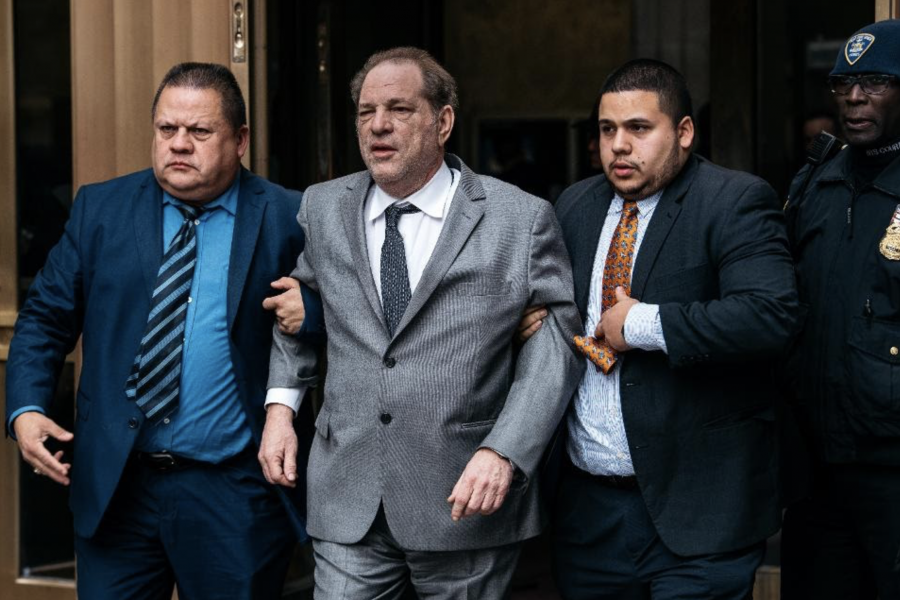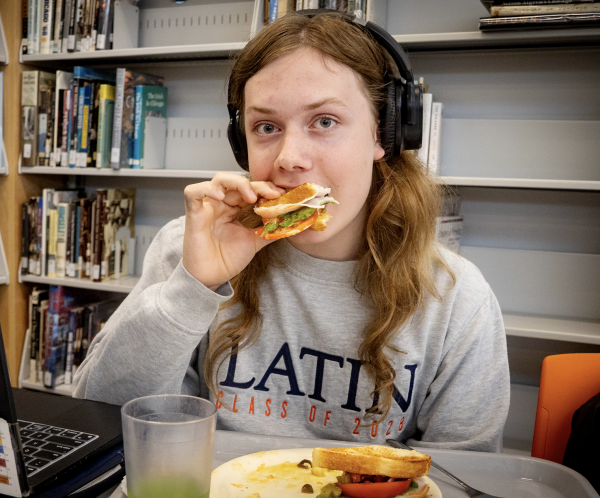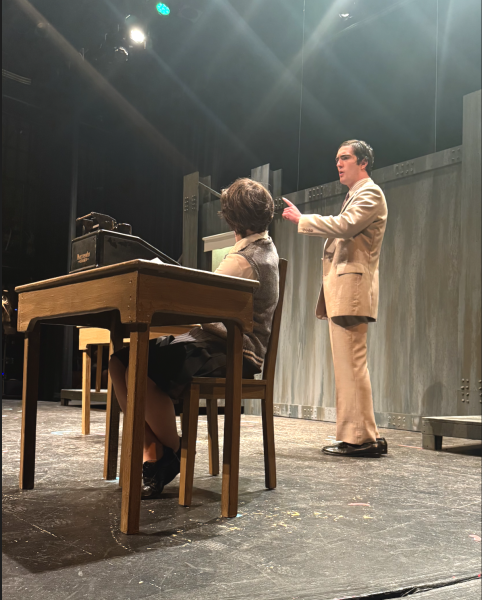LAW’s Take on Weinstein’s Sentencing
March 13, 2020
On February 24th, Harvey Weinstein was found guilty of both first-degree sexual assault and third-degree rape. Weinstein was acquitted of the two most severe allegations he was charged with: two counts of predatory sexual assault. As a result, Weinstein, who has been accused of sexual misconduct 36 times, will serve 23 years in prison. But the question with respect to Latin remains: how will such a historic case change the conversation surrounding sexual assault across the community?
In order to understand the significance of such a verdict, many members of the school are turning to Latin’s Alliance for Women (LAW). Maya Passman, one of the heads of LAW, says, “my initial reaction is honestly relief.” No matter the exact sentencing, she is reassured that some form of justice was served. “There are too many stories of the law silencing women survivors of sexual assault—this is a large victory” she says, “especially against a man that is so powerful.” In the era of the #MeToo movement, the nation can no longer overlook the voices of these victims; the judicial system must begin to reverse years of negligence. “I want to say that this will set the stage for future trials, but sexual assault has a long history in this country, and a bad track record with trials,” Passman adds. Although it is unclear how future cases of sexual assault will be handled, Weinstein’s sentencing will hopefully create a dialogue about such issues.
As Passman mentions, many are relieved that Weinstein was found guilty, yet his sentencing leaves some members of the Latin community feeling unsatisfied. When asked about Weinstein’s verdict, LAW member McKenna Fellows says, “I’m glad that he is serving time in general, but I think his punishment should have been more severe.” Although justice was served in some capacity, Fellows emphasizes the gravity of Weinstein’s actions relative to the verdict. She says, “considering how many lives he affected and essentially ruined, I’m not totally in favor of the verdict.” However, it is important to acknowledge that Weinstein is being condemned for his actions despite the clauses of said condemning.
Sophomore Zoe Weiss echoes Fellows’ sentiments. “Sentencing like this is sort of discouraging,” she says. Not only does Weinstein’s case affect the lives of those in LAW, but its impacts will be felt throughout the school, as well. Weiss adds, “it does affect Latin—it affects the community’s ideas regarding sexual assault. Because this is such a global case, it makes the whole issue of sexual assault all the more relevant.” Trials of this importance can be lost on students; it is possible that people feel so far removed from the conflict that it feels inapplicable to life at Latin. However, it is apparent that members of the community know the momentousness of this verdict. And they are eager to share their opinions.
“I hope people realize the power dynamic that goes on with these cases, which can happen in high school too,” Passman adds. Weinstein is just one example, albeit in the national spotlight, of those who abuse the privilege that they possess. At this time, it is crucial to create a discourse regarding these abuses of power. “I hope that LAW will set up some conversations to discuss what it means to stand up for yourself even when there are lots of obstacles preventing that from happening,” Fellows says. When asked if LAW plans to organize a time to talk through Weinstein’s sentencing, Passman stresses her plans to collaborate with the student body. She says, “if people want a safe space and feel like LAW could facilitate it, then we would be happy to.”






















































